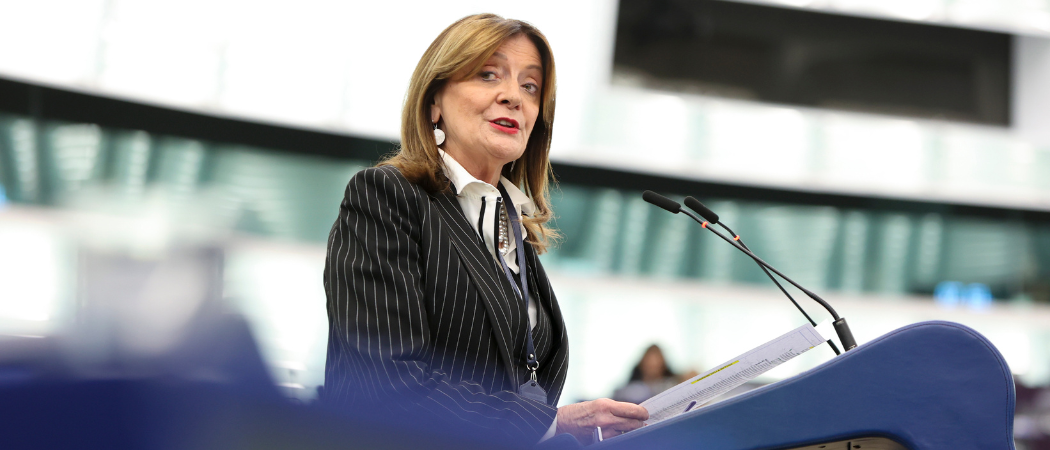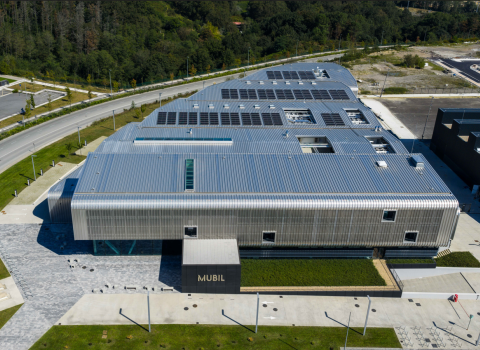Ensuring European industries can compete while achieving Green Deal targets should be a priority of the next mandate

MEP Patrizia Toia. Photo credits: Frédéric Marvaux / European Union
A bigger EU budget is needed to ensure industry in Europe is not left behind by Green Deal legislation, and the answer could lie in replicating the EU’s response to COVID-19, the vice chair of the European Parliament’s industry, research and energy committee (ITRE) has told Science|Business.
Patrizia Toia, who is running for re-election in June, says her priority for the next mandate will be to push for a “real European industrial plan”, that enables sustainability targets to be met without handing a competitive advantage to manufacturers outside the EU.
Toia pointed to the case of solar panels, where sustainability targets combined with an inadequate industrial strategy have left the EU reliant on imports from China. There is a broad understanding in Brussels of the need to avoid repeating this mistake.
The industrial plan should be funded by strengthening the overall EU budget for the 2028-2034, and in addition “fresh money [should] be channelled into the sustainable conversion of our industrial production”, said the Italian MEP, of the S&D group.
One suggestion is to look to the model of NextGenerationEU, the €800 billion instrument that was set up to help member states recover from the pandemic, as a potential source of additional funds. “If there is one lesson learned from the pandemic, it will be that nothing is impossible when political will exists,” Toia said.
NextGenEU provides member states with grants and loans for investment in areas including health, sustainability and digital. In a major first for the EU, it is funded by joint debt, but the programme is due to expire in 2026.
In recent months, several prominent figures have called for the EU to extend its common borrowing. French president Emmanuel Macron and Estonian prime minister Kaja Kallas have suggested issuing joint bonds to fund increased defence spending, while the EU’s economy commissioner Paolo Gentiloni pitched a similar instrument for research and innovation. Macron repeated his plea while visiting Germany this week, calling for the EU budget to be doubled, “through common borrowing strategies or the instruments that already exist.”
Research and innovation play a crucial role in competitiveness, meaning a solid framework programme is also required, Toia said. “A programme such as Horizon Europe investing in R&I is an indispensable tool for the realisation of the union's strategic objectives.”
While several MEPs and research organisations have called for the next research programme FP10, to have double Horizon Europe’s €95.5 billion budget, Toia’s primary goal is to ensure the budget is “not less than €100 billion.”
Changes to EU research programmes
June will mark 20 years since Toia was first elected to the European Parliament in 2004. She has been a member of ITRE since then, and in that time has seen major changes to the EU’s framework research programme.
“Whereas within FP6 and FP7 the focus was more on technological research, with FP8 [Horizon 2020] the focus began to turn additionally on open science and innovation,” she said. Each major reform was followed by a considerable increase in the budget.
Over the past few years, member states have repeatedly turned to Horizon Europe as an easy source of money to fund other priorities, from supporting Ukraine to supporting critical technologies through the Strategic Technologies for European Platform.
Even before Horizon Europe was launched, MEPs had to fight to defend its budget. Toia highlights the role of fellow Italian David Sassoli, the late president of the European Parliament, who pushed to prevent further cuts early in the mandate. “This is part of the immense legacy he left us, as the great pro-European and humanist that he was,” she said.
Now the research world is worried that the move to strengthen Europe’s defence capabilities will draw funding away from other areas of research. In January the Commission published a white paper proposing three different options for boosting research with both civilian and military applications, including removing the exclusive civil focus in parts of Horizon Europe.
“Unfortunately, the past few years have been telling us that our defence ambitions must be reinvigorated, and research is naturally the first pillar to be reinforced,” Toia said, noting she has, “always been very critical on the possibility of opening up funding to more dual use research.”
Toia was involved in the creation of the European Defence Fund, the €8 billion military research programme launched in 2021, after taking over as shadow rapporteur for the file in 2019.
She is also a member of STOA, the Parliament’s scientific advice panel, and last year proposed launching a study on whether FP10 should adopt a strategy of “evolution or disruption,” which she hopes will be picked up in the next mandate.
“We have been witnessing radical paradigm shifts on the world scene, therefore, it is strategic that the next FP10 policy setting process should follow a foresight approach and respond to the needs in the long term,” Toia said.
STOA’s leadership came in for criticism last year when it delayed the publication of a study on the EU’s pharmaceutical reform until the authors had responded to members’ questions, but Toia says being a member of the panel has been a worthwhile experience. “I could see the added value for my work of relying on independent information about developments in science and technology.”
As the election campaign nears an end, she believes citizens are interested in science even if they don’t know the ins and outs of EU policy. “People react positively if they feel they are listened to and engaged. Our job is to reinforce this bond of trust, and I do not ever shrink from this responsibility,” she said.





 A unique international forum for public research organisations and companies to connect their external engagement with strategic interests around their R&D system.
A unique international forum for public research organisations and companies to connect their external engagement with strategic interests around their R&D system.